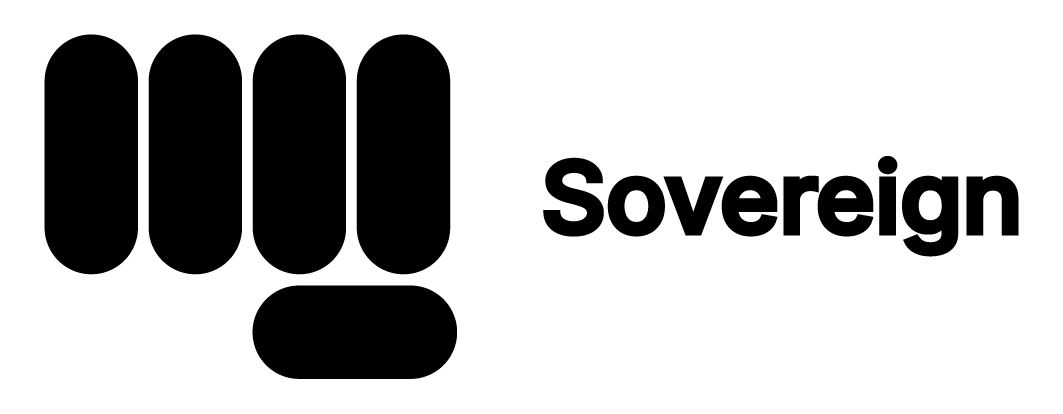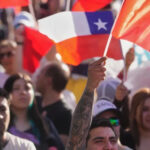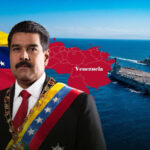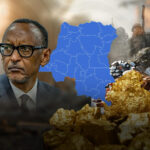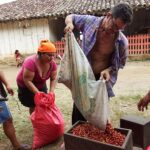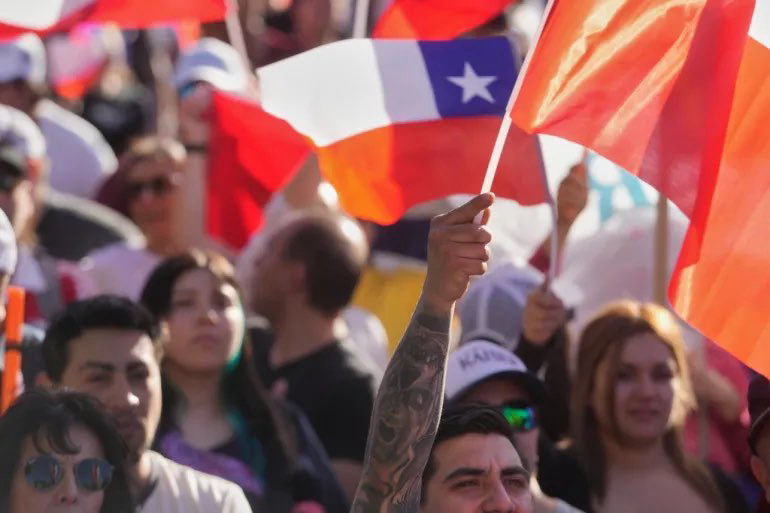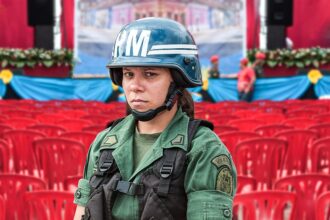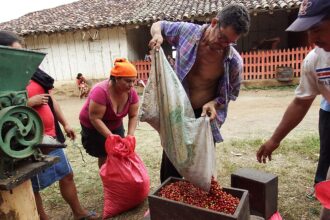Five years after mass protests nearly toppled Chile’s neoliberal order, the country’s November 16 election looks set to crown a far-right president from among three German-descended Pinochet admirers. With security hysteria drowning out economic concerns despite Chile being Latin America’s safest country, even the Communist-backed frontrunner promises an “iron fist” against migrants and indigenous Mapuche—while suicide rates double homicides and 80% of workers drown in debt from their own pension funds.
Author: Alejandro Kirk
“Dankeschön..!” presidential candidate Evelyn Matthei said, smiling, during a live national TV debate this week after fellow candidate Johannes Kaiser went off-script and gave her a rose for her birthday.
Along with José Kast, Matthei and Kaiser are Chile’s main far-right presidential contenders in the first round of this Sunday’s general election. Even though ethnic Germans make up only around 3% of the country’s 18 million people, Kast, Matthei and Kaiser are all of German descent. All are admirers of Augusto Pinochet, who overthrew socialist president Salvador Allende in 1973 and led a military dictatorship for 17 years that was among the most brutal in Latin American history.
Their right-wing credentials are clear to see. Matthei is the daughter of the late air force general Fernando Matthei, an active participant in the coup against Allende in 1973, and later a member of Pinochet’s Junta. Kast is the youngest son of a former German Wehrmacht officer and Nazi Party member, who entered Chile on false papers in the late 1940s. The much younger Kaiser is a fervent follower of Donald Trump and Javier Milei.
No candidate will win the required outright majority in the first round. Any one of the three right-wing candidates may face Communist Party member Jeannette Jara in the December runoff. But while Jara is the undisputed first-round favorite, every poll shows her losing to any right-wing opponent in the second round.
Rule by Iron Fist
Apart from issues such as abortion rights, it is hard to find any fundamental difference between the main center-left and right-wing candidates. Yet, each side accuses the other of “extremism.”
The political spectrum has narrowed to a single theme: security through force. The debate no longer centers on whether to use an “iron fist,” but on how to deploy it. All major candidates, including Jara, who has promised to abandon the Communist Party if elected, embraces the phrase to describe their approach to immigration, crime, and “narcoterrorism” – the term now used for the indigenous Mapuche people’s centuries-long struggle for autonomy.
Their proposals range from harsh to extreme. Jara promises a “digital wall” and new border police. Franco Parisi, a right-wing populist, suggests planting anti-personnel landmines to deter migrants. Kaiser has floated armed attacks against Bolivia, where most irregular migrants transit. Kast pledges to expel 350,000 undocumented immigrants at their own expense. All support deploying the army against street crime.
Safety ranks high on the list of public concerns. But Chile is by far the safest country in Latin America. Chile’s homicide rate is 4 to 4.5 per 100,000 inhabitants, significantly lower than the global average of 5.8. According to the Center for Crime Studies and Analysis, Chile sits alongisde countries like Spain and Poland. The pervasive fear of crime is manufactured by media coverage. Surveys show that up to 50 percent of all news coverage is focused on crime, compared to less than 10% on economy and employment, and even less on health, education and environment combined.
While homicide dominates headlines, suicide kills nearly twice as many Chileans—10.4 per 100,000, a rate that has doubled since the early 1990s. Most victims are men aged 50-59, when jobs become impossible to find, and those over 80, surviving on below-subsistence pensions. Yet this crisis receives minimal media attention and goes unmentioned in presidential debates.
The suicide pandemic is the product of economic hardship. Average pensions hover around $150 monthly — less than one-third of the $500 minimum wage. Jara, until recently Labor Minister, touts a reform that increased capital managed by private pension funds by 60% — a windfall for the financial industry that provided only marginal increases for retirees. None of the four main candidates fundamentally questions this system. Matthei blames pensioners themselves for not making enough “effort” to save.
The pension funds’ real business isn’t providing retirement income but channeling workers’ savings back to them as high-interest loans. Over 80% of working Chileans carry debt, with 6% in default. The Fundación Sol research center calculates that more Chileans are indebted than are employed — meaning retirees, dependents, and the unemployed are also borrowing to survive.
A Crisis of Depression
A 2021 study by the Chilean Association of Security Scientists found that one in three Chileans showed clinical symptoms of depression — with uncounted others undiagnosed. The study attributes this to social inequality, competitive work culture, urban stress, and the unresolved legacy of 17 years of dictatorship, including thousands of “desaparecidos” — people arrested by the state and never found.
The right-wing candidates stress that Chile must instead look forward, and forget such issues that sow division in society and happened a long time ago, with Kaiser committing himself to pardon former military officers jailed for committing crimes against humanity and Kast attributing suicides to “loneliness.”
An exception must be noted for candidate Eduardo Artés, a school teacher and leader of the Maoist-leaning Proletarian Action Communist Party. He is the only one drawing attention to social and economic factors behind desperate extremes such as land occupation and suicide.
Artés is also the only one talking about renationalizing national resources, pension funds, strategic utilities or industrializing the country. All others focus on facilitating foreign investment for further extraction of minerals, promising to scrap current (and weak) environmental-protection legislation.
Artés is also the lone defender of Venezuela, with others indirectly justifying or supporting the current US military aggression in the Caribbean by parroting imperialist appeals about the supposedly “authoritarian” character of the revolutionary Bolivarian state.
However, with around 1% of support, Artés has no chance to become President.
This wasn’t inevitable. Just five years ago, Chile seemed on the verge of transformation.
Pinochet’s dictatorship formally ended in 1990, but the country inherited both its institutional framework and deeply entrenched neoliberal economics. Post-Pinochet center-left governments kept the structure intact, making Chile one of Earth’s most unequal countries.
In October 2019, a spontaneous mass revolt exploded over a small public transit fare hike. Within days, hundreds of thousands gathered daily in the streets, demanding constitutional change and an end to the neoliberal model. The powers-that-be trembled as protesters realized their collective strength — but the movement lacked leadership and political direction.
The political establishment closed ranks, negotiating a “Peace and New Constitution” agreement that included a plebiscite and constitutional convention. This deal, combined with brutal repression and the pandemic, demobilized the protests.
The subsequent constitutional process was carefully manipulated over time by mainstream media, social media algorithms and the “political class.”
Into this void, the far-right’s narrative of fear and iron fists has flourished. The process ended with the defeat of the proposed new constitution after a 2023 referendum and the quick revival of fascism. The current left-leaning government of Gabriel Boric — itself a product of the revolt — became paralyzed, unable to react, and a victim of its own lack of conviction and audacity.
Unlike Mexico’s president Claudia Sheinbaum, who based her campaign on the continuation of Andrés López Obrador’s achievements, Jeannette Jara goes to great lengths to try and distance herself from Boric and the government of which she was part.
While most main candidates show little disagreement on fundamental issues, they seek votes not by generating new hope, but by warning people that not voting for them will bring disaster upon their lives and the country.
“Strictly speaking, we will not be voting for an idea or a dream of a country, but out of fear of losing what remains standing. Fear, or rather terror, that our adversaries will win,” says local analyst Max Colodro.
To prevent embarrassingly constantly decreasing turnout — reaching a low of some 27% at local elections, and between 40 and 50% for president, recently the political establishment enacted mandatory voting, with fines up to $130 (nearly half the minimum wage) for non-participation.
In the past turnout was constantly decreasing,
Those most reluctant to vote are the poor. And the poor — abandoned by the left for decades, facing overwhelming economic pressure — are both the least educated and most likely to embrace the far-right’s simplistic solutions.
The math is stark: either a male neo-Nazi or “libertarian” of German descent becomes president, or the “moderate” option — a female German Pinochet supporter. In the unexpected best case, Jara wins on anti-fascist fear and leads a “progressive” government aligned with the United States, hoping to convince big business that workers deserve marginally better conditions.
Five years after Chile’s streets filled with hundreds of thousands demanding transformation, the choice is between varieties of the same neoliberal model that sparked the revolt — some flavored with open fascism.
Revolution will have to wait.
(*) Chilean-Venezuelan journalist. Senior correspondent of HispanTV.
